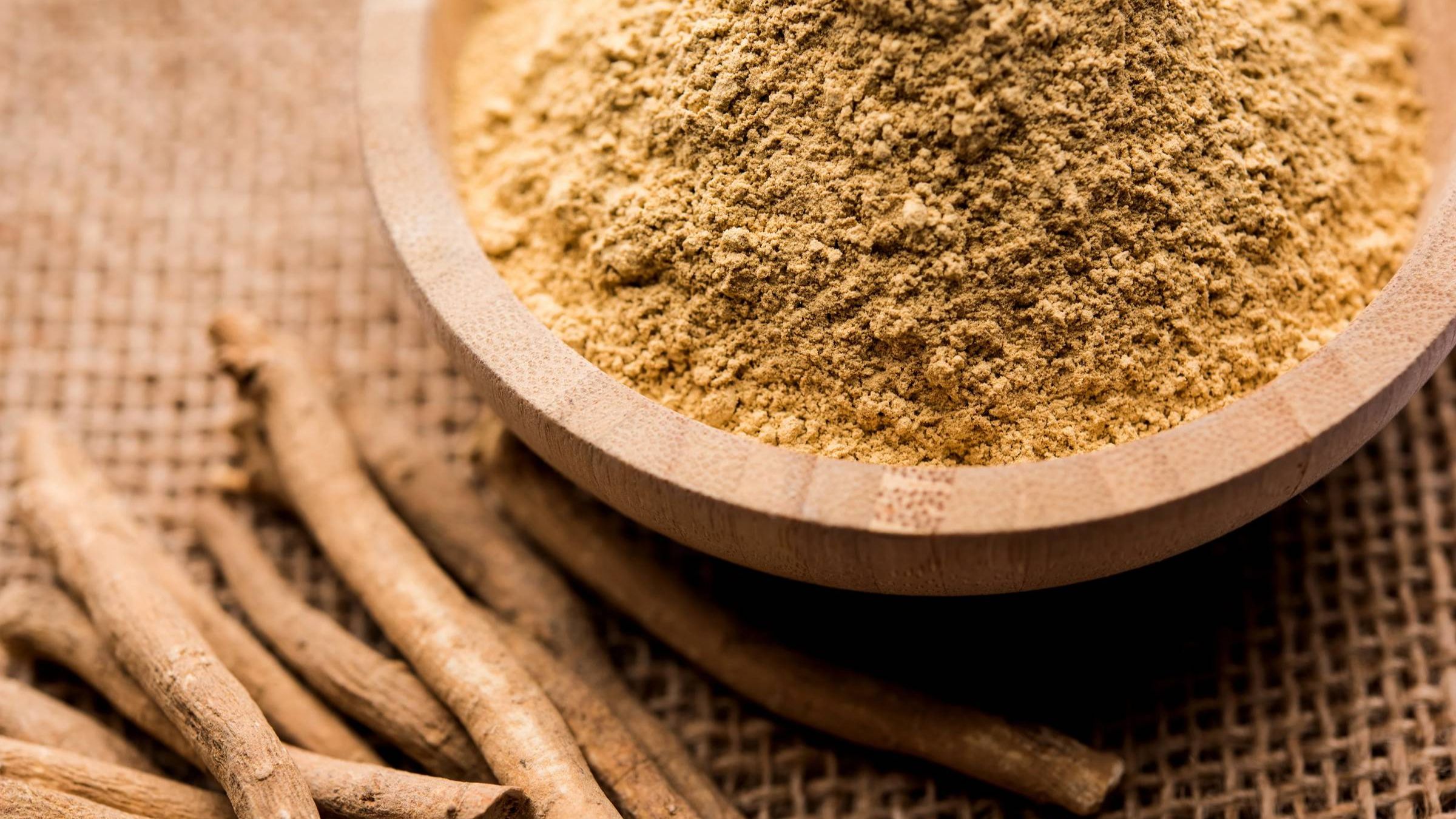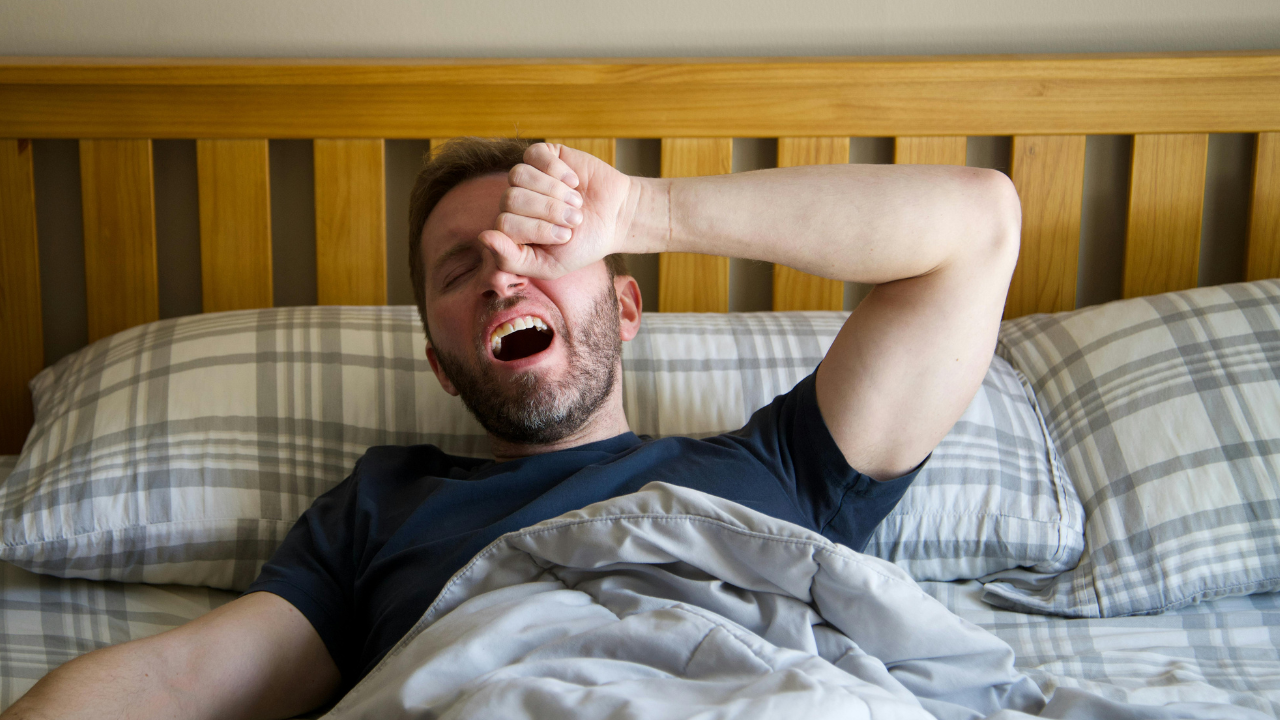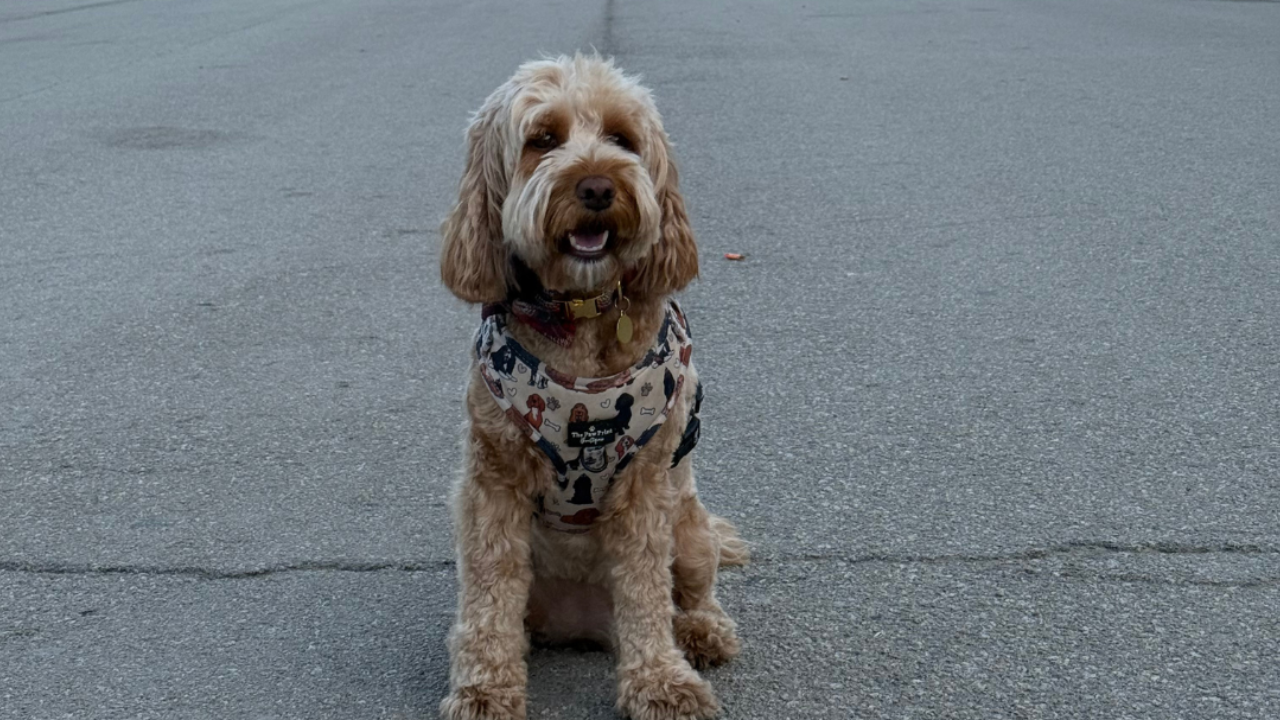Why “Strength” Alone Isn’t Enough to Keep You Young
Oct 21, 2025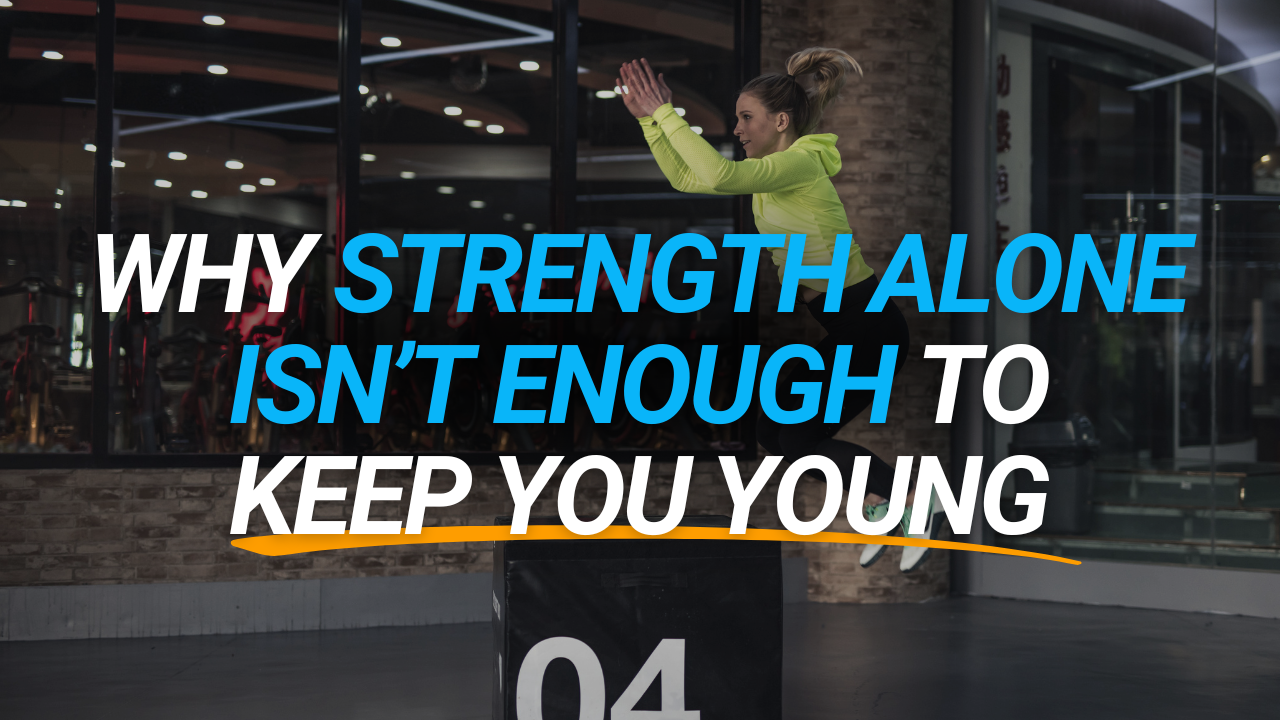
You've heard me harp on about the importance of strength training and the need to build an adequate amount of muscle to aid your quality of life.
Not only for the here and now, but the years and decades to come.
While building muscle and developing strength is extremely important, there's an element that is key to longevity that countless people neglect.
And as I'm going to highlight with several studies, has been shown to be a greater predictor of longevity than muscle strength.
That key element is Muscle Power.
To get clear on how muscle power plays a crucial role in longevity, first we need to understand two things:
- What power is?
- The impact that falls have in older adults.
"Muscle power is the ability of a muscle to exert maximum force in the shortest amount of time possible."
It's defined mathematically as Power = Force x Velocity.
Muscle strength is the force and speed is the velocity.
In Layman's terms. power is how quickly your muscles can produce a given movement.
Jumping, sprinting, and throwing are three perfect examples.
How high someone can jump is determined by how much power they have in their body, not by the amount of muscle and strength they have.
Hence why the majority of bodybuilders are as slow as a wet Wednesday.
They're got a shit tonne of muscle, but they haven’t developed the power to use that muscle quickly.
So when they jump or sprint, it's a painful sight to behold.
(Some bodybuilders are exceptionally explosive, mostly because they played sports growing up and kept some of those fast twitch muscle fibers)
The more strength a person has, the greater their scope for power is, but that strength needs to be translated into power through the right training (which we'll discuss later on).
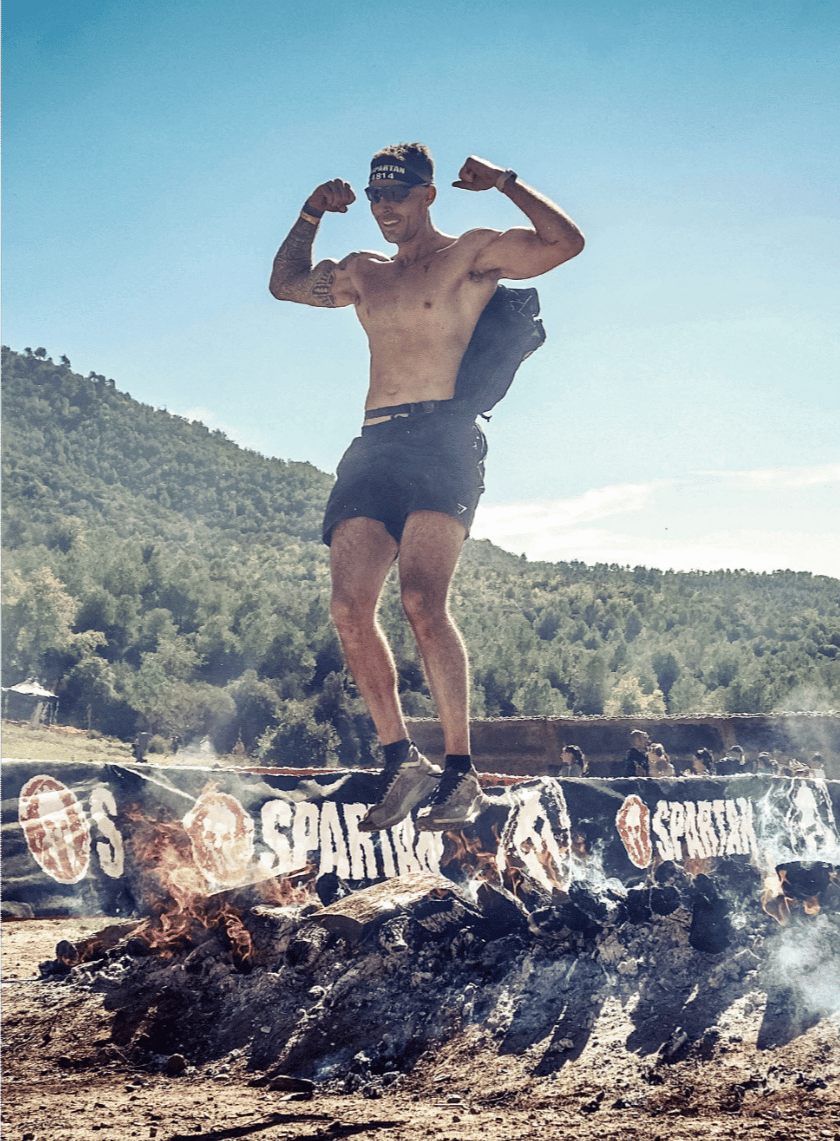
(Even after 22 km and 30 obstacles, I still had the power in my legs to produce this finish line picture)
Ok let's move onto falls next.
Falls can cause some serious injuries and as a result, can be deadly as we age.
1 in 4 older adults report falling every year, which is why falls are one of the leading causes of death among adults 65+ (1).
The issue isn't the fall itself, but rather what happens afterwards.
Very rarely does someone die from falling, unless of course it's in front of a speeding car or off the side of a cliff, then you're royally screwed.
But when an older person falls and they cause themselves some serious damage, let's say a broken leg or a broken hip, that puts them out of action for an extended period of time.
Suddenly their movement comes to a stop, and this sets off a litany of bad shit!
As they're not moving as much, their:
Muscle starts to waste away
Body fat starts to increase
Bone density weakens
Metabolism slows
Sleep quality lessens
Inflammation increases
Hormones get disrupted - More cortisol and less testosterone & growth hormone
This all adds up and when it does, trouble shows.
If a person in their 70s breaks a hip, it could lead to diabetes, and eventually death.
Or them developing cardiovascular disease.
So while the fall itself may not kill you, it could literally be the beginning of the end.
This is where muscle power comes into play.
There's this really annoying thing called 'Sarcopenia', which is the age-related progressive loss of muscle mass and strength, and is defined as a reduction in skeletal muscle mass, muscle strength, and function.
Less muscle mass and weaker muscles are a recipe for disaster, hence why strength training is so important as we age, as it helps to offset the damage that sarcopenia can do to your body.
A stronger body allows you to move through life much easier.
For example, sufficient strength of the limbs (arms and legs) is clearly necessary to support the body's weight when someone is moving, regardless of age.
Otherwise we'd all be crawling around like Leonardo DiCaprio in "Wolf Of Wall Street".
But there comes a point where that strength plateaus out and isn't any more beneficial.
If someone has the strength to get out of bed every morning or climb the stairs, getting stronger isn't going to make that person any better at performing those tasks.
But what about when someone is climbing those stairs and trips up on one of the steps, what happens then?
For those people who are untrained and lack the adequate power in their body?
They lose their feet from underneath them and fall on the stairs, smacking their knees hard and potentially hurting their wrists and shoulders.
Not to mention the very real possibility of banging their head, or the worst case scenario of falling backwards.
But what about those who are well trained and possess adequate power in their body?
The situation plays out entirely different.
They trip up (something we've all done before, sober and pissed), but instead of losing their feet from underneath them and falling,
They quickly lift the opposite foot, planting it on the step they had just missed.
Rather than doing themselves some serious damage, they've gotten off scot-free and carry on with the rest of the day as normal.
Unless of course you do this in public in front of other people. That embarrassment stays with you for a few minutes and you want the world to swallow you up 😂
But I suppose a bit of embarrassment is nothing compared to a potential trip to A&E.
Talking of quick reflexes, I want to get ring cameras installed in my apartment purely for the reason of capturing me harnessing my inner Spiderman every now and again.
I was making coffee a few days ago and a cup fell off the side of the sink and without even thinking, or looking, my hand went out and grabbed it, while I was making coffee.
It was some next-level superhero sh*t and I won't lie, I wasn't impressed with how unimpressed my Fiancée was 😂
Maybe it's because she's just so used to my cat like reflexes that it doesn't impress her anymore.
But there's also an important lesson to be learned in that story.
Without the right level of muscle power, I would have seen that cup drop to the floor and smash, along with my superhero status.
So, whether it's stopping yourself from falling, or a cup, muscle power is essential to a happy life.
Researchers from the Department of Kinesiology and Health at Georgia State University in 2022 came to the conclusion that muscle power was more important than strength in preventing falls in community-living older adults (2).
They found that the participants who didn't fall, known as "Non-fallers", took significantly less time to complete the 'Sit-To-Stand Test' and also demonstrated more leg muscle power than fallers.
In essence, they found that the older adults who didn't fall over had a greater ability to produce power in their lower body.
The European Review of Ageing and Physical Activity (EURAPA) aim's to uncover the impact of physical activity or exercise on cognitive, physical, and psycho-social functioning of older people, physical activity patterns in advanced age, and the relationship between physical activity and health.
They published a study in 2022 that looked at fifteen independent trials and 583 participants (3).
The objective of this study was to review the effect of power training compared to strength training in older adults on tests for muscle power.
They compared power training (lifting weights with speed) against traditional strength training (lifting slower and heavier).
They wanted to see which method worked best for improving muscle performance and everyday movement, which ultimately improves their ability to maintain independence.
As we've just discussed, muscle power is clearly very important for older adults, hence the relevance of this study.
What they found:
- Power training led to bigger improvements in muscle power than standard strength training.
- It also improved functional movements, like walking speed, getting up from a chair, and climbing stairs.
- When compared to people who didn’t train at all, the benefits of power training were even greater.
In short: older adults who trained with speed and control made stronger gains in how well they could move and perform daily tasks.
This research review is clear evidence that power training is superior to strength training alone when it comes to maintaining independence and quality of life as we age.
BUT, it's very important to remember that in order to develop muscular power, you need to build the muscle and strength first.
It's like building a car and installing a turbocharger before you instal the engine, it simply ain't going to function correctly.
First you build stability → Then endurance → Then overall strength → Then maximal strength → Then power.
And talking of engines, cardiovascular fitness is one of the most powerful longevity predictors we have available to us.
Pretty much, if your cardiovascular health isn't great, don't expect to live as long as you should.
But a bit of research out of the world renowned Mayo Clinic this year wanted to prove that relative muscular power was a stronger predictor of all-cause mortality than relative muscle strength (4).
They concluded that the effects of muscle power is a superior predictor of mortality compared with muscle strength in middle-aged and older adults.
In Layman's terms, those with more muscular power tended to live for longer.
Again, this doesn’t mean that more power automatically means a longer life, but rather it's what that power gives the individual on a day-to-day basis. My example with the stairs being a perfect example of how powerful could change the trajectory of your entire life.
All this research should change how we should view strength training and assessments in older adults.
But not even that, if you're 30 or 40, it should also change how you view your own training.
It's going to be much easier for you to start developing power now, than it is in 20-30 years time.
By no means impossible, but clearly more difficult.
Could you start saving up for a Ferrari in your 70s?
Sure.
But it would be a hell of a lot easier if you started saving in your 40s.
Same goes for muscular power.
So, while building muscle and strength is obviously very important (I'm off to deadlift 200kg in the next hour), we'd be a food to neglect power...
And I know you ain't no fool!
Because I pity the fool.
I like the fact that I made you read that in a Mr. T voice 😂
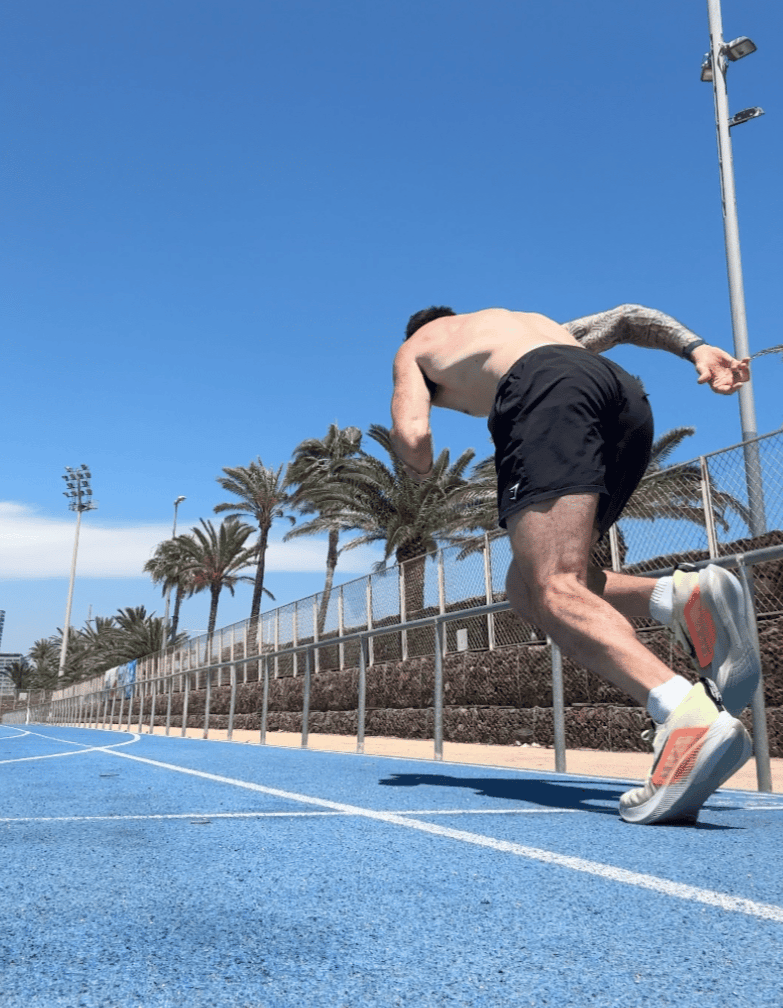
(Not many better ways of building power than SPRINTS!)
Right, I don't want to leave you in the dark, so before I go, here's some advice on developing muscular power:
- Be patient: Follow the "roadmap" I mentioned earlier on. You need to build the requisite stability and base strength before you start training power. One of the most painful things I see in the gym is people performing box jumps who clearly lack the ability to jump correctly, which moves me onto my second poin.
- Practice perfection: Your technique needs to be near flawless when you're performing power based movements. As you're moving weights at faster speeds than regular strength training, the chances of your form going wayward increase. Again, echoing the previous point, be patient with your technique and really take the time to nail it.
- Train in cycles: If you want to get better at a skill, it's better to go all-in on that skill, well the same goes for physical attributes. If you want to build muscle, you focus on that, and if you want to develop power, you focus on that. So, maybe for 4-6 weeks your main focus is on developing your power, then maybe it shifts towards strength.
- Prioritise the lower body: I'm not telling you to neglect the upper body, but leg power is most closely linked to independence and fall prevention. Focus on movements that train the hips, knees, and ankles to produce force quickly. Plyometric movements such as depth jumps, box jumps, skips, hops, and sprinting are great examples.
- Lift with intent to move fast: You need to perform the lifting (concentric) phase as quick as you can, essentially, you need to be nice and aggressive! For example, push up fast on a leg press, then lower under control. You can apply this principle to squats, push ups, and most other exercises.
- Use lighter loads: If you can deadlift 100kg once, you're going to want to use a load in the range of 30-70 kg, depending on how many reps and sets you are going to perform. The goal here is to move the bar from the start to finish position as quickly as possible, so the weight you lift needs to allow for that. This will take some experimenting on your behalf (or if you want a coach to remove ALL the stress and take care of your workouts for you, click here).
- Real-world practice: Lastly, I highly advise that you transfer this new found power into the real world. So release your inner child and play. Do stuff that challenges your coordination and reinforces your skills, such as throwing a ball (and catching), balancing (go walk the plank at the local park), and chasing kids at that same park (preferably your own 😂).
Right, we're done, and that was full to the brim of important information.
Start moving with intent, speed, and control.
It's going to help you keep your independence as you age, and it'll guarantee that the strength you build is actually strength useful as you get older.
Catch you next time.
Quote for the day
“Experience is a hard teacher because she gives the test first, the lesson afterward.”
- Vernon Law (former MLB player)


